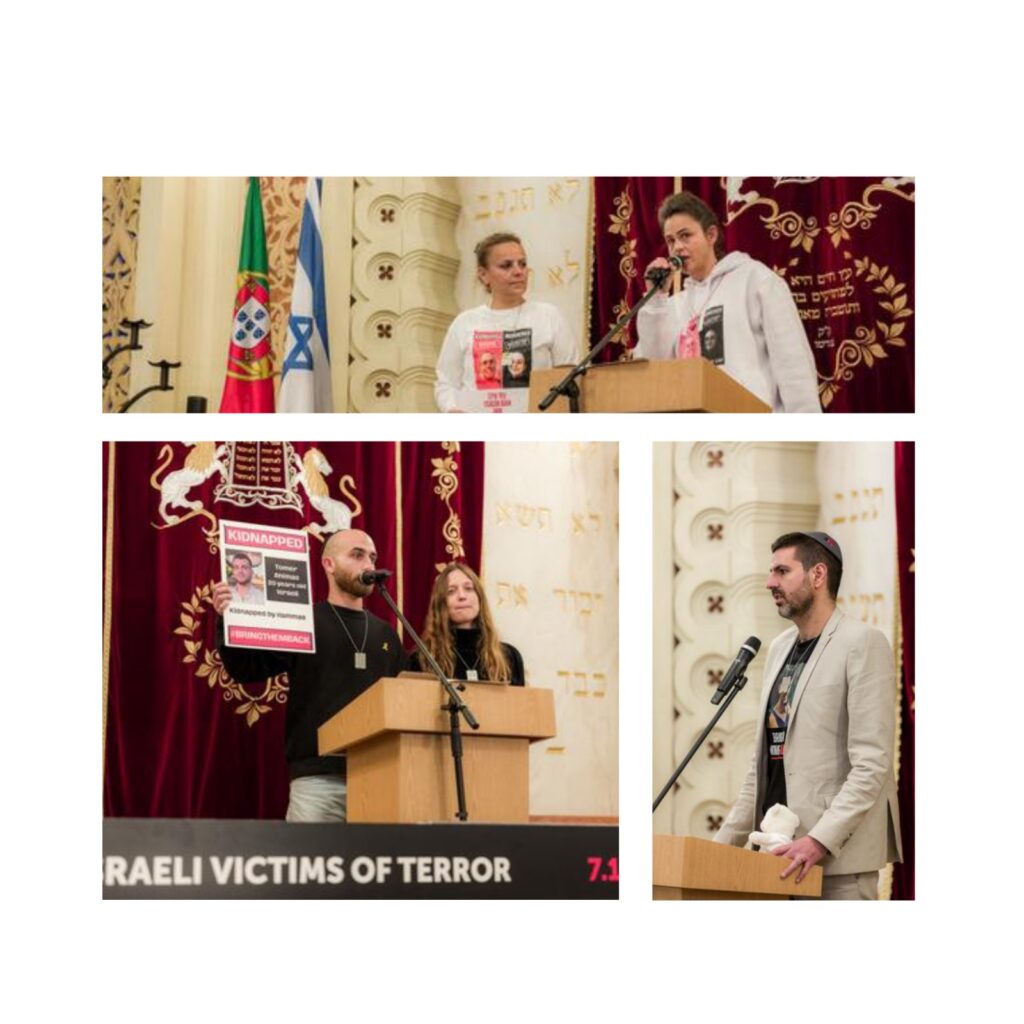We commend our partner in Portugal for their unwavering dedication. The Oporto Jewish community welcomed seven hostage families, pledging relentless support. Here’s an excerpt from Gabriel Senderowicz Mold’s speech:
Our tireless efforts to assist the hostages:
First to alert the President & media about Portuguese citizens among hostages, urging Qatar’s aid.
Advocated for broader diplomatic ties to secure freedom for Portuguese citizens.
Expedited nationality certification for those with Sephardic roots.
Urged prompt action from the Registry Office.
Applied pressure on Portuguese authorities through media channels.
Took legal action when registry decisions fell short.
The battle continues: We’re still in court fighting for the rights of the late Ravid Katz’s family.














